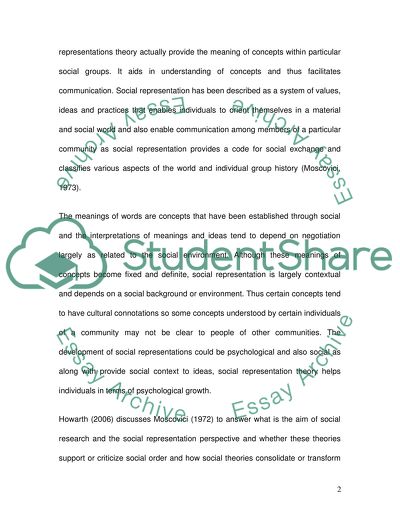Cite this document
(“Critically discuss the value of social representations theory to the Essay”, n.d.)
Critically discuss the value of social representations theory to the Essay. Retrieved from https://studentshare.org/miscellaneous/1529246-critically-discuss-the-value-of-social-representations-theory-to-the-social-sciences-in-particulary-to-the-science-of-history
Critically discuss the value of social representations theory to the Essay. Retrieved from https://studentshare.org/miscellaneous/1529246-critically-discuss-the-value-of-social-representations-theory-to-the-social-sciences-in-particulary-to-the-science-of-history
(Critically Discuss the Value of Social Representations Theory to the Essay)
Critically Discuss the Value of Social Representations Theory to the Essay. https://studentshare.org/miscellaneous/1529246-critically-discuss-the-value-of-social-representations-theory-to-the-social-sciences-in-particulary-to-the-science-of-history.
Critically Discuss the Value of Social Representations Theory to the Essay. https://studentshare.org/miscellaneous/1529246-critically-discuss-the-value-of-social-representations-theory-to-the-social-sciences-in-particulary-to-the-science-of-history.
“Critically Discuss the Value of Social Representations Theory to the Essay”, n.d. https://studentshare.org/miscellaneous/1529246-critically-discuss-the-value-of-social-representations-theory-to-the-social-sciences-in-particulary-to-the-science-of-history.


